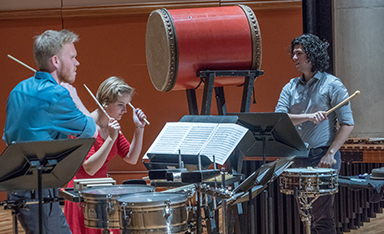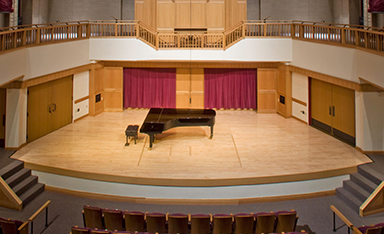The Master of Arts in Music Theory is an intensive, highly personalized program for aspiring educators, performers, and composers who want to deepen their understanding of the theoretical language behind music. In this program, you’ll study in small, collaborative classes led by expert faculty, engaging with advanced topics such as counterpoint, Schenkerian analysis, set theory, serialism, contour theory, and neo-Riemannian techniques. You’ll also conduct original research alongside the guidance of a member of our faculty, culminating in a master’s thesis that contributes to the field on a topic of your choosing.
If awarded a Graduate Teaching Assistantship, you’ll receive valuable teaching experience by giving you immediate access to the classrooms of our undergraduate theory courses. You can also choose to pursue a dual degree with any Master of Music concentration and combine analytical mastery from this program with performance, composition, or conducting.
Graduates of this program go on to rewarding careers in higher education, performance, composition, arts leadership, and more—equipped with the tools to interpret, teach, and innovate within their chosen profession.
About Our Program
Application Requirements
Please review the current requirements on the Music Theory studio page.
Degree Requirements
The master of arts in music theory consists of 45 credits in addition to these non-coursework requirements:
- Thesis
- Final oral comprehensive exam, including defense of thesis
- Superior scores in the musicology and music theory proficiency exams
- Convocation attendance
Learn more about the Master of Arts in Music Theory.




